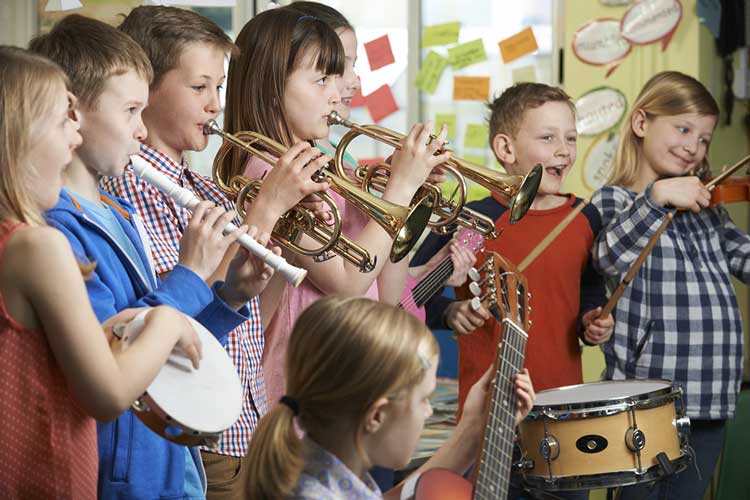Last updated January 2025

Need a French horn for your marching band-mad kid or a cello to channel your inner Yo-Yo Ma? Go to an instrument store, where you can try before you buy. These shops are staffed by experts who can give suggestions on models from student level to so-you-joined-the-symphony professional. Such melody marketers usually also sell sheet music, accessories (drumsticks, viola bows, etc.) and, often, on-site lessons. Click here for customer reviews of local music stores.
Music stores generally offer some services other retailers don’t: instrument rentals and lease-to-buy plans. This is all inspired by—and tailored to—schoolkids who passionately take up the violin, flugelhorn, et al., and then discover they’d rather play basketball/video games. The theory: Why shell out for expensive equipment until you know you’re joining the symphony or going on tour with Taylor Swift?
But is renting a sax, trumpet, or drum set a good deal? We called local instrument stores that offered month-to-month or short-term (usually three- to six-month) rental programs to ask about their prices and terms.
On a high note, unless you find a Stradivarius for cheap on Facebook Marketplace, it’s a better short-term deal to rent than to buy. For example, for a trumpet (brands and models vary by store) retailers quoted us monthly rental fees of $15–$32; purchasing a similar horn would cost $500 and up. You can hire a flute for $17 and up per month; to buy one will run you $300 to $1,500. And string instruments—violins, cellos—as well as some woodwinds often need to be traded in or replaced as kids grow, which also makes leasing make good financial sense.
Some schools also offer rental programs, too, often at even cheaper rates than stores. Music teachers and band directors may also know of rental deals or used instrument sources.
Before signing on to the mandolin-by-the-month club, ask to get rental terms and prices in writing. Some stores will rent instruments for a single month, but it’s more common to have a short-term contract, say three or nine months (tailored to the school year or terms). And most but not all shops offer lease-to-own programs, and insurance or maintenance programs. Ask, too, about used instruments, which are cheaper to rent and often not very different from new.
A finale: If you decide to pony up to buy a Fender or Gibson, used is also usually a better deal than new, and many music stores also deal in secondhand models. And give serious thought to buying your kid an instrument until you’re really, really sure that he or she is serious about music.


